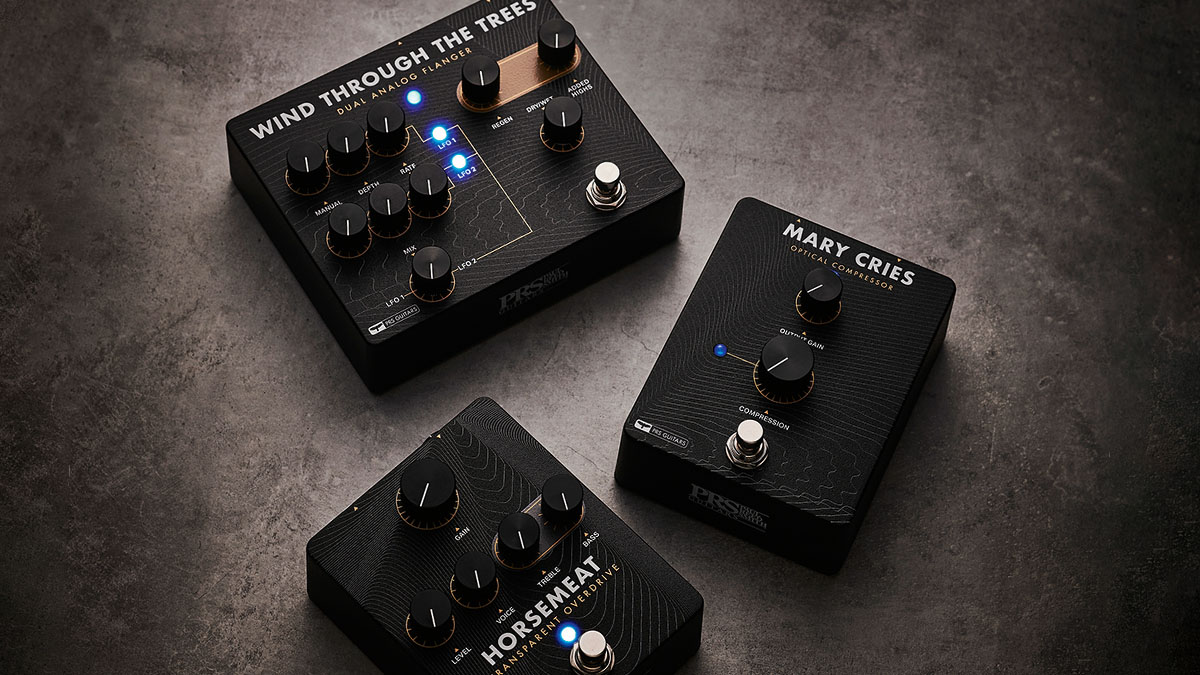Guitar World Verdict
Like Paul Reed Smith’s admission suggests, each of these pedals delivers pro-quality sounds and tone-enhancing performance that are sure to win over even the staunchest pedal skeptics.
Pros
- +
Top-quality sounds.
- +
Wind Through the Trees is a desert island flanger.
- +
Good design, with top-mounted jacks.
- +
Built from high-quality components.
Cons
- -
The enclosures are pretty sizeable by modern standards.
You can trust Guitar World
Anyone who has paid close attention to Paul Reed Smith’s thoughts about guitar gear over the last decade or three knew that the chance of PRS ever releasing effects pedals was as likely as pigs flying or hell freezing over, as he often criticized stompboxes.
However, seasons change and reasons change, and here we are looking at a trio of brand new boxes introduced by PRS. “I hate pedals,” Smith acknowledges in a promo sheet included with each product, before he elaborates, “At least that’s what I used to say,” and admits that he’s started collecting them.
Like many guitarists who get the collecting bug, Smith discovered that none of the various overdrives he had provided the sound he was looking for, so he decided to design his own. That effort led not only to the Horsemeat Transparent Overdrive, but also the Mary Cries Optical Compressor and Wind Through the Trees Dual Analog Flanger.
This mighty triumvirate of tone does indeed offer guitarists sounds and textures that occupy their own sonic territory, each living up to the standards of quality that players expect from PRS.
Features
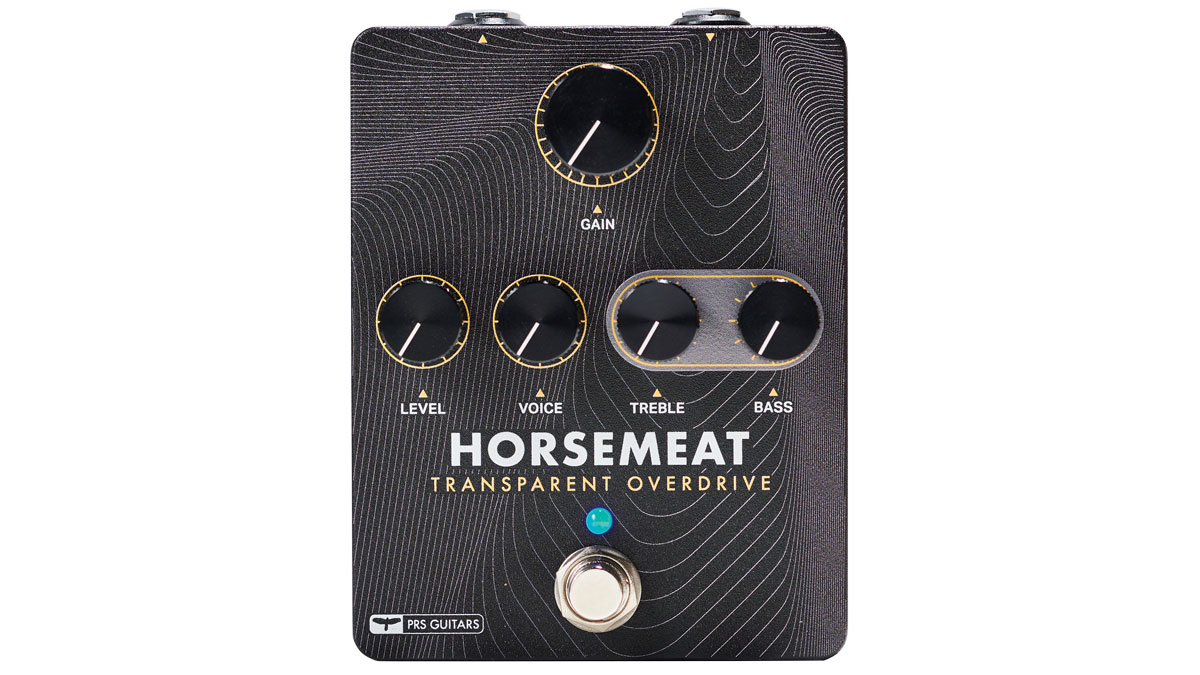
The Horsemeat Transparent Overdrive provides a simple but versatile selection of controls: Gain, Level, Voice, Treble and Bass.
The Mary Cries Optical Compressor controls consist of Output and Compression, the latter accompanied by a blue LED that becomes brighter or dimmer depending on how much the signal is being compressed.
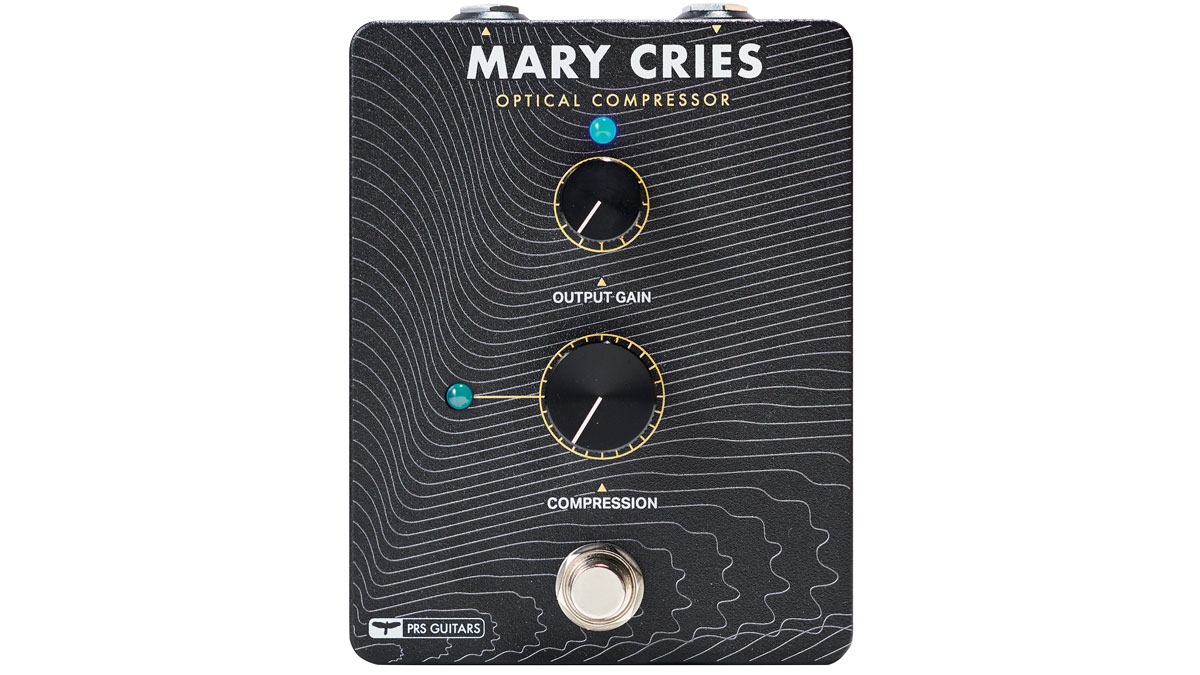
The Wind Through the Trees Dual Analog Flanger is about one-and-a-half times bigger than the others, and it offers a more sophisticated set of controls that includes individual sets of Manual, Depth and Rate knobs for LFO1 and LFO2, a mix control for isolating or blending LFO1 and LFO2, Regeneration, Added Highs and Dry/Wet balance. Each Rate knob is also accompanied by a blue LED that pulsates in time with each LFO’s setting.
All the latest guitar news, interviews, lessons, reviews, deals and more, direct to your inbox!
Each pedal has mono 1/4-inch input and output jacks and a standard-size 9VDC barrel jack mounted on the upper side surface. An external power source or adapter is necessary (no battery operation).
The control knobs are metal and have ridged edges to facilitate grip, and the potentiometers have the firm but smooth feel of the controls on high-end studio gear.
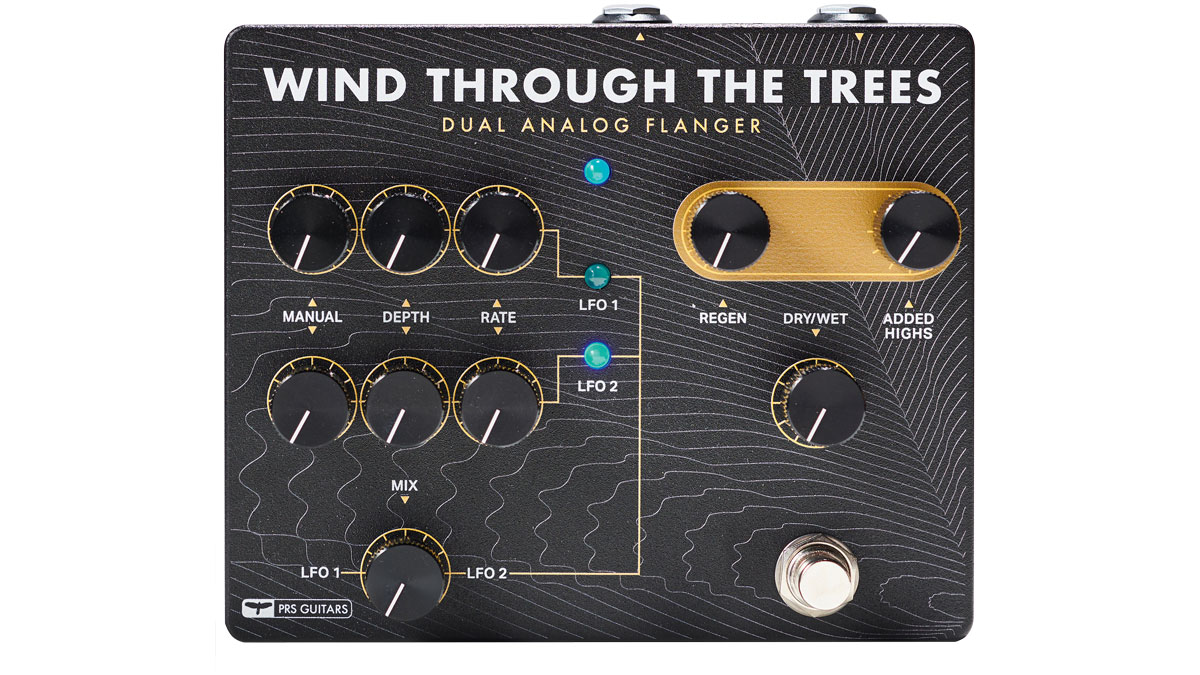
The heavy-duty footswitches provide true bypass when the effect is off. Component quality is a priority, with parts connected to the circuit boards using through-hole soldering, which is more labor-intensive than cheaper surface mounting construction.
Performance
While the Horsemeat pedal can certainly deliver its namesake transparent overdrive effect, it goes beyond that with its treble and bass EQ and Voice control, which all can sweeten and emphasize desirable tonal character. These controls don’t radically change your guitar’s tone, but rather they allow you to bring upper mids up front, emphasize shimmer and attack or fatten the body.
With the Gain control down and the Level boosted, Horsemeat produces clean boost, and as the Gain amount is increased the texture shifts from overdrive to the brink of distortion – a wider range than most other transparent overdrive pedals.
The Mary Cries Optical Compressor is based on the studio stalwart LA-2A, which is many guitarists’ and engineers’ favorite compressors for guitar. This pedal’s compression effect is very transparent and refined, with none of the squash or flattened character of most compressor pedals.
Mary Cries sounds particularly good with single-coil pickups, fattening up the body and enhancing sustain, and it does a great job adding balance to each note in a strummed chord. I actually prefer it over the Horsemeat for clean boost, which is dialed in by turning the Compressor knob all the way down and dialing up the Output Gain control.
The wild effects of the Wind Through the Trees flanger may make it the odd one out compared to the utilitarian Horsemeat and Mary Cries pedals, but it’s certain to please the most discriminating flanger fan.
It covers the gamut of flanger effects, from metallic textures and lush chorus to warbling Leslie-like tremolo and jumbo jet swooshes, along with thick, chewy textures that only analog flanging can deliver. The Added Highs knob is its secret weapon, allowing users to bring the jet-like sweep to the forefront or dial it back for a more subtle effect. Simply put, this is a desert island flanger.
Specs
PRS Horsemeat Transparent Overdrive
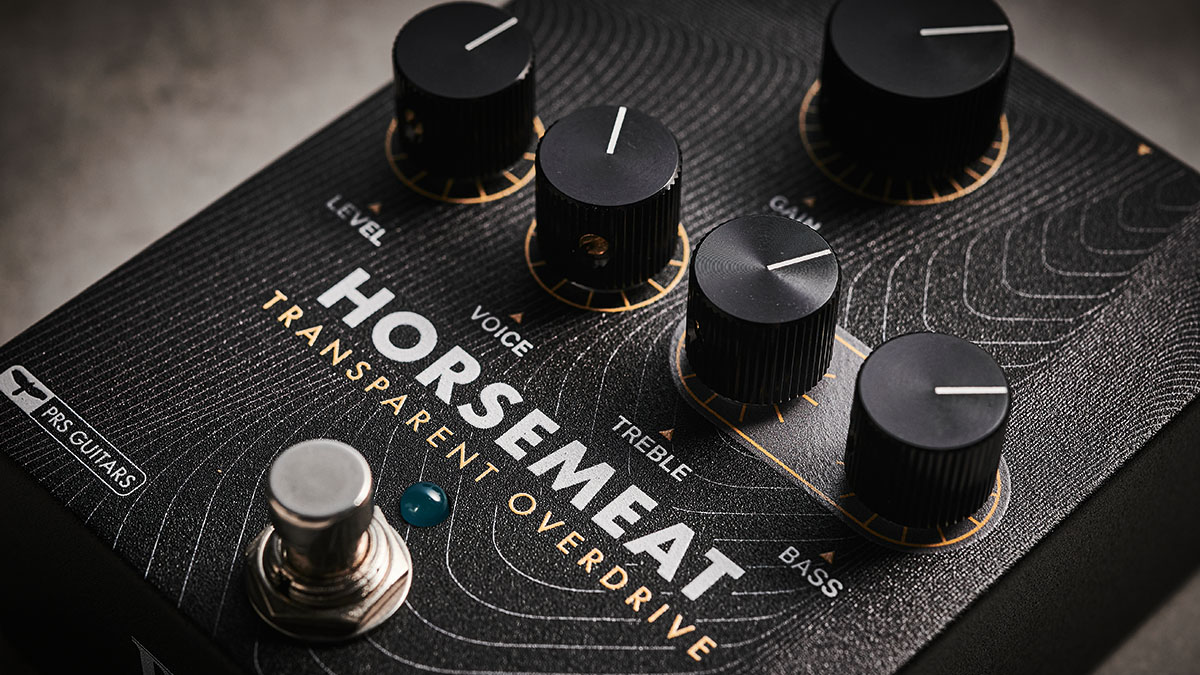
- PRICE: $249 /£269 street
- TYPE: Overdrive pedal
- CONTROLS: Gain, Level, Voice, Treble, Bass
- SOCKETS: 1x input, 1x output, power
- BYPASS: True
- POWER: 9V power supply (16mA)
PRS Mary Cries Optical Compressor
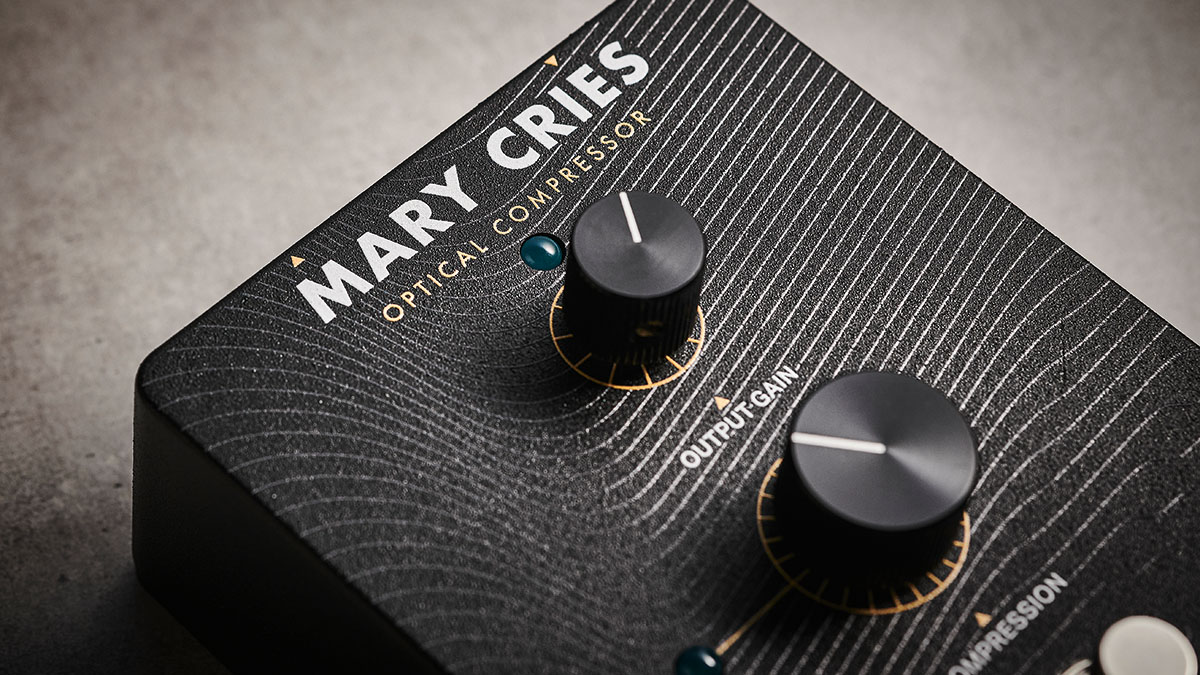
- PRICE: $/£219 street
- TYPE: Analog optical compressor
- CONTROLS: Output Gain, Compression
- SOCKETS: 1x input, 1x output, power
- BYPASS: True
- POWER: 9V power supply
PRS Wind Through the Trees Dual Analog Flanger
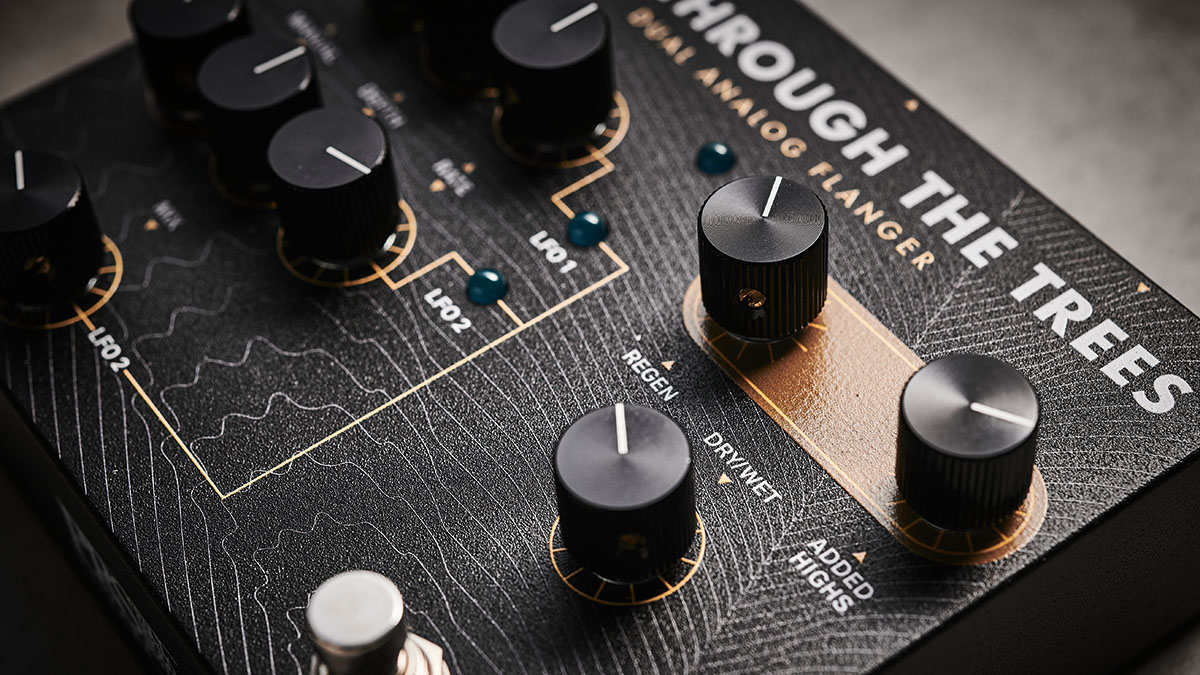
- PRICE: $349/£369 street
- TYPE: Analog dual flanger
- CONTROLS: Independent Manual, Depth, Rate for LFO 1 and LFO 2, Mix LFO, Dry/Wet, Regen, Added Highs
- SOCKETS: 1x input, 1x output, power
- BYPASS: True
- POWER: 9V power supply
- CONTACT: Paul Reed Smith
Chris is the co-author of Eruption - Conversations with Eddie Van Halen. He is a 40-year music industry veteran who started at Boardwalk Entertainment (Joan Jett, Night Ranger) and Roland US before becoming a guitar journalist in 1991. He has interviewed more than 600 artists, written more than 1,400 product reviews and contributed to Jeff Beck’s Beck 01: Hot Rods and Rock & Roll and Eric Clapton’s Six String Stories.
